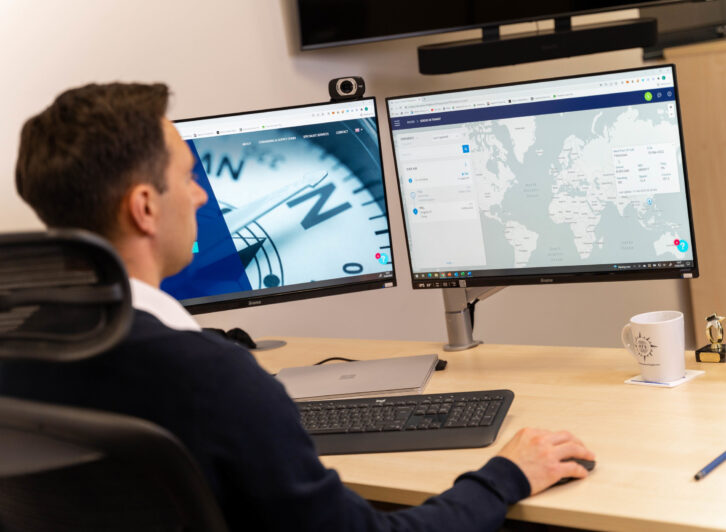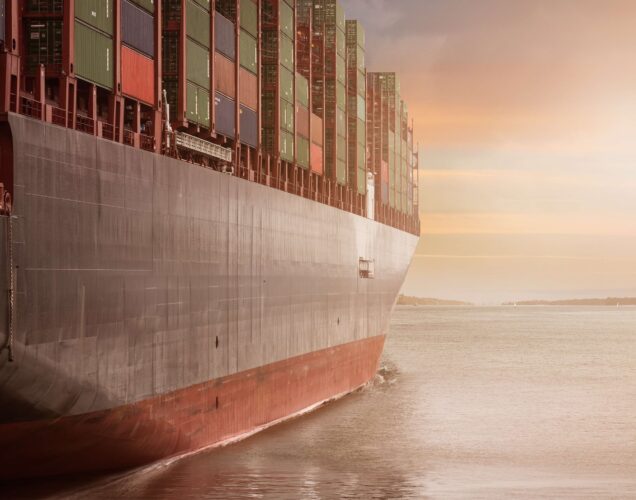It can be frustrating when your goods don’t arrive on time or in the condition you expected. Or if the costs for their transportation are far higher than they needed to be. Delays, inflated prices and other issues can occur for a variety of reasons, most of which are avoidable with a little insight and experience in the field.
Here, our experts in each arm of logistics share their tips on making the process of getting your goods from A to B more streamlined, efficient and cost-effective.
Finding Efficiencies in Export Packing
Finding Efficiencies in Air Freight
Finding Efficiencies in Warehousing
Finding efficiencies in Export Packing
Our specialist export packing service maximises efficiency with tailor-made case design and state-of-the-art protective packaging. Here are some of our top tips on the most efficient solutions for export packing:
Maximise Space With Custom-Made Packaging
Using pre-made cases and packaging that haven’t been designed around your cargo can be incredibly inefficient. It’s vital to choose the correct level of packaging — there’s no point packing small or light goods in very heavy-duty (and costly) cases.
Here at HFS we offer a complete case design service for tailor-made packaging created with your product in mind. We use CAD drawings to design custom-built cases and wooden shipping crates to safely and professionally pack your cargo. Our cases help you make the most of your space during transport, saving you both time and money.
All of our cases can be delivered assembled or flat-packed for easy storage, and we also offer an on-site packing service to take care of the entire process for you. Plus, our efficient production methods mean we can handle urgent orders promptly.
Dealing with awkwardly shaped cargo? Not a problem! We’re able to create bespoke packaging for any type of product and have 20 years’ experience packing and transporting everything from manufacturing machinery and motorcycles to valuable artwork and museum artefacts.
Take the Journey Into Consideration
Our cases can be crafted to maximise space, but the safety of your cargo is just as important. During our design process, we take the journey of your product into consideration to inform the finished product. Good questions to ask yourself include:
- Will the crate or case be handled multiple times or just once? If the former, do you need to include additional packaging to safeguard against damage?
- How will your cargo be handled? Does it need to fit into a shipping container? Does it need to be easily lifted by a forklift, pallet truck, or crane?
We bear all of this information in mind when designing our packing solutions, to ensure the smoothest and safest journey for your cargo.
Consider Atmosphere Risks
Proper packaging can mitigate the risks of damage from movement during transportation, but it’s important to think about other forms of atmospheric damage like moisture and heat. If your cargo is vulnerable to degradation like rust, moisture damage, or warping, we can provide special protections when we design your packaging.
Our cases can be lined with poly, barrier foil, or PE10, and can also be covered with the same materials to prevent external damage. We can also pre-pack cargo in foil bags and include desiccant within crates and cases to create a secure and airtight environment. Heat-treated packaging, shrink wrapping, vacuum packing, and heated storage can also be selected depending on the needs of your cargo.
Make the Most of Technology
Export packing solutions go beyond the analogue. You also have a range of useful technology at your fingertips to maximise efficiency during transport.
For example, consider whether your cargo is vulnerable to tilting or shocks. If this kind of movement has the potential to damage your goods, we can fit each of our cases with state-of-the-art sensors. These monitor your cases and inform you if any out-of-the-ordinary disturbances occur during transport. That way, you’re insured against any damage to your cargo.
Finding efficiencies in Air Freight
It’s a faster but more expensive way of transporting your goods around the world, where costs are based more on volume than weight. So it’s more important than ever to consider your packaging and look for further efficiencies.
Here are a few tips from our Air Freight team general manager, Mark Billany.
- Pack your consignment to take up the least possible space.
The cost of sending your goods will depend more on how much volume your carton takes up on the plane than how much it weighs. Use smaller boxes for your items and make sure you eliminate dead space wherever possible will keep your costs down. You might be able to cut boxes to be a better fit, or if that is not possible you could look into packing more – perhaps smaller and denser – items into the box with lighter goods to maximise your space/weight ratio.
- Understand your goods and their Commodity Code.
Ensuring your classification is accurate is absolutely key in ensuring your consignment’s smooth transit through customs. If you use the wrong code, this will mean you end up paying too much or too little customs tariff or duty, and you will find there are repercussions – both financial and time-based – in both instances.
Please note that HMRC are currently increasing their efforts to monitor compliance, and if your products are not classified correctly this will lead to a significant hold up (which will incur charges as well) while they are detained pending the correct paperwork. HMRC may also want to conduct a post-clearance check on your business, investigating activities over the last few years.
- Review the circumstances for your products’ movements.
Within the Commodity Code information, you will see some items where legitimate tax savings are available if the circumstances allow. For example, if importing almost any kinds of goods from developing countries, your consignment will likely be at a reduced tariff or nil-rated. But you must present the correct Commodity Code.
Complying with customs regulations, UK and overseas, is of course a necessity and doing so requires care and attention. Providing inaccurate information, incorrect customs tariff codes or Customs Procedure Codes (CPC) on export or import entries can result in delays to goods and extra costs as well as customs queries or inspections, which can have adverse consequences or possible fines.
- Become a Known Shipper
This is another way of saving money, as Known Shippers get to bypass the need for their goods to be X-rayed and the costs associated with it. This said, many shippers choose not to apply for this because the cost of maintaining their Known Shipper status with the DFT may outweigh the long-term benefit and is sometimes a false economy.
- Be transparent
When working with a forwarder, it’s important to be transparent about your cargo and the context. Air freight forwarding is challenging in so many ways, with constant changes and unforeseen issues, so always offer full information. A flexible forwarder with the right accreditations should be able to adapt to circumstances and take a proactive problem-solving approach in the face of a challenge. Being transparent means they’ll be able to give you valuable solutions to any situation. Good communication and relationships will make a huge difference.
Finding efficiencies in Warehousing
Being efficient with warehousing means we can minimise bottlenecks during peak periods, ensure we store your goods in the most effective manner and offer a seamless service through to your client’s door.
Our Director, Craig Perrin, came up through Hemisphere’s warehousing arm, winning awards on the way, and has a huge amount of experience in the field. Here are a few of his key tips…
- Take advantage of the latest software.
Software is now a key driver of efficiency in warehousing. Apps and integrations linking your website or office to your inventory allow for constant updating and automatic ordering. We routinely link to other companies’ web shops or systems via EDI or API to allow for up-to-date information on inbound and outbound shipments as well as live stock records. The systems talk to each other, so the warehouse receives orders in an automated process and returns the orders back to clients’ systems as completed with tracking information. This means no data entry and no waiting for information – it is all live and accessible as it happens.
- Make scanning easy
The use of barcodes on cartons and pallets has rapidly sped up the processing of inbound and outbound shipments, allowing for information to be sent instantly across your inventory and other records. Make sure your product cartons are marked with a Stock-Keeping Unit (SKU) as well as weight, dimensions, quantity and item name, and labelled with EAN (international article number) barcodes.
- Get clever with your packing
Make sure your staff or suppliers pack containers at origin in SKU order. This will really help to speed up the process of offload and ultimately dispatch to your end clients.
- Efficiency in quantity
Look to sell your products in full pallets, cartons or inner packs as much as possible. This will keep your picking costs down, as warehouse staff won’t need to spend as much time collecting and packing individual items for dispatch.
- Plan properly for promotions
Let us know about any promotions or sale events as far upfront as you can. Doing so will ensure we can get the right resource in place – people, warehouse space for sufficient stock, any extra packaging, etc – to deliver for you and your clients.
- Be good for the planet while being good for your brand
Today’s purchasers are more sensitive to conservation of the planet’s resources than ever before. We use eco-friendly materials for packaging, and upcycle cartons where possible, while maintaining your brand’s integrity.
Looking to optimise your supply chain?
With our immense level of experience and personal attention to detail, your goods can be transported in a way that ensures no space is wasted and every hour between the source and your destination counts.
To discuss your shipping needs with a member of our expert team, call +44 (0)1473 852958 or email us at sales@hemisphere-freight.com





